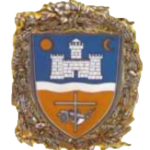Welcome

This website exists to preserve and celebrate the history, traditions and heritage of the descendants of some of the settlers from southwest Germany who joined the Great Swabian Trek into Hungary in the early 18th century. They were part of a larger group known as the Danube Swabians but in order to highlight their own unique identity and history in Hungary they are described as the Children of the Danube. For like the Children of Israel, they too were in quest of a Promised Land. The reader is provided with access to resources and information about their history, culture, faith and tradtions. It also provides assistance in researching their own family history and specifically introduces them to the settlements and villages in Swabian Turkey in the Counties of Tolna, Somogy and Baranya.
The website also introduces the reader to the various books related to the Children of the Danube and their origins, history and destiny written by Henry A. Fischer. It is interactive and your comments, questions and requests for additional information are welcome.
You are now invited to enter the world of the Children of the Danube.
